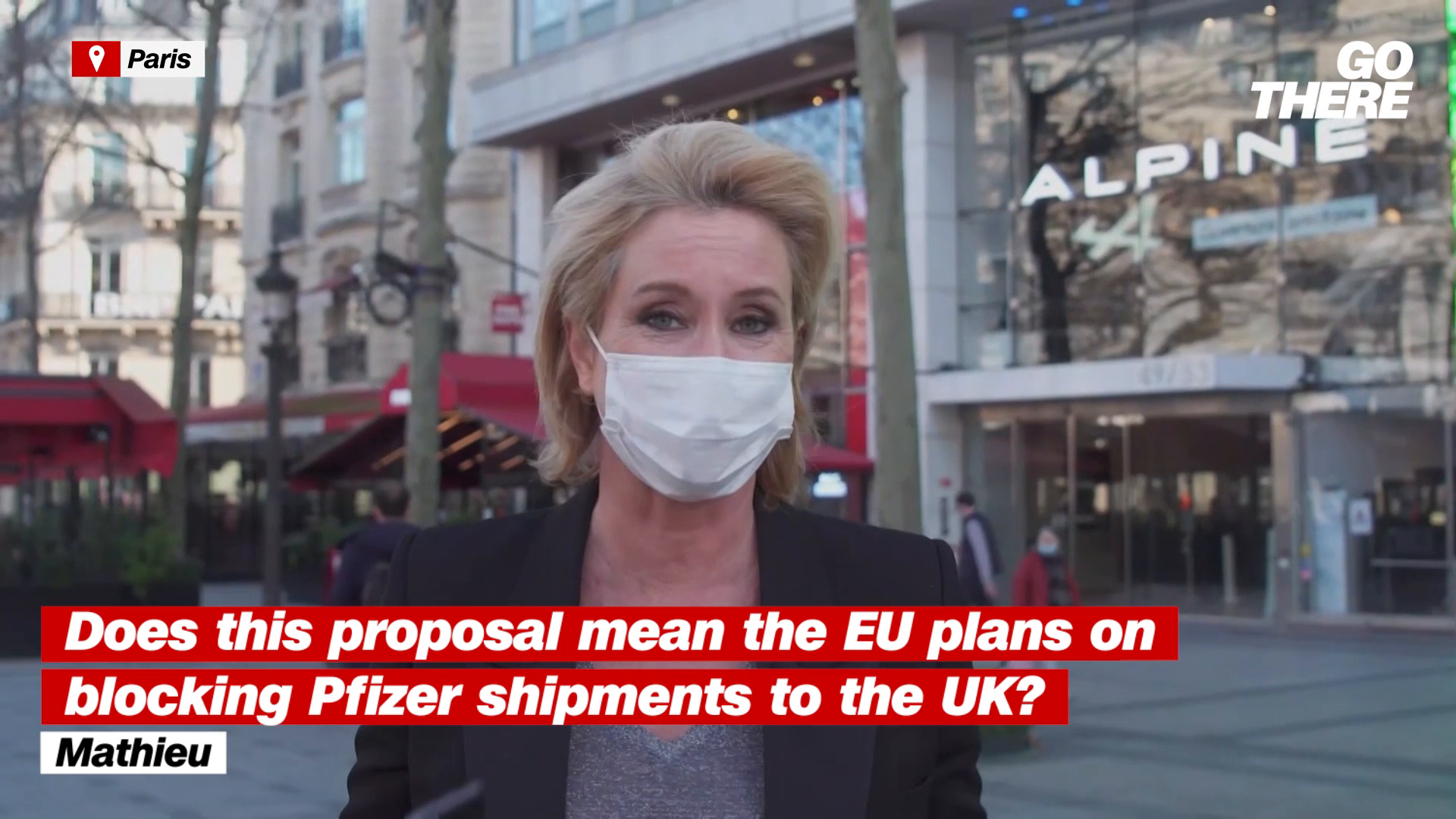
A senior European diplomat is calling for caution regarding the use of proposed new rules that would govern Covid-19 vaccine exports outside the EU. The rules were announced by the European Commission on Wednesday.
The stricter export controls presented by the Commission would allow vaccine shipments to be assessed on the basis of the vaccination rate in the country of destination and vaccine exports.
In a briefing to journalists, the diplomat said that the EU and European countries must “be careful with their own nuclear option of a pure export ban”. And if not used correctly in “appropriate situations, the shot will backfire”.
“We speak – I would say – a pharmaceutical superpower, we have a large concentration of pharmaceutical companies in our territory”, whose presence, “represents several percentages of our employment, of GDP”, explained the diplomat.
“We are very aware of the interdependence of these logistical chains and we think that using an export blocking tool can turn against us very quickly,” said the diplomat, adding that he fears “that it will expose us to clear retaliation measures, breach of trust and also diminished future possibilities for investment and trade. “
The existing export mechanism – which focuses on pharmaceutical companies – has been in place since late January and requires each company that makes the Covid-19 vaccine to register its intention to export doses outside the EU. European countries, in collaboration with the Commission, decide whether to approve or reject remittances.
In figures released today by the Commission, more than 300 orders were placed, with 43 million vaccines exported to 33 countries. Only a shipment of 250,000 doses of the AstraZeneca vaccine from Italy to Australia has been blocked.
The diplomat welcomed this “excellent by-product” of the current mechanism. “We understand, of course, the need for more transparency, we directly support the Commission in this regard”, adding that “we now have a very precise view of how export flows are organized”.
Asked why the extension of the legislation is being presented now, the diplomat said he felt it, “it is probably a sign of a certain nervousness that is reigning”, in some European counties.
“The Commission is not deaf to what lives in the member states, they hear cries for help or outrage, and it is up to the Commission to reflect on this and make proposals,” he added.
European leaders will meet on Thursday and Friday to discuss this proposal and the broader coronavirus crisis in Europe. If approved, the expanded export mechanism “would apply up to six weeks from its entry into force,” according to the Commission’s preliminary text.
